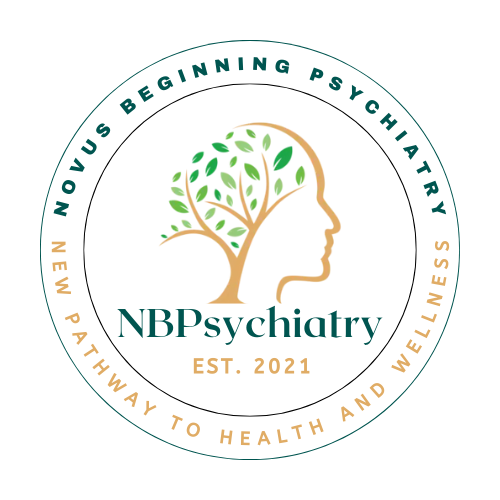Psychiatric Evaluation

What is Psychiatric Evaluation?
The psychiatric evaluation assesses an individual’s mental health and emotional well-being. It involves a detailed examination conducted by mental health professionals, i.e., psychiatrists, to gather information, make diagnoses, and develop appropriate treatment plans.
The psychiatric evaluation process typically involves various steps, including interviews, observations, and psychological assessments. A psychiatrist starts by creating a safe and non-judgmental environment to establish trust with the individual. This allows the doctor to gather information about the person’s mental health history, current symptoms, and relevant life events or stressors.
Along with the interview, psychiatric evaluation often includes reviewing medical history, including physical health conditions, previous mental health diagnoses, medications, and family history of mental illnesses. Understanding these factors can provide insights into the underlying causes of the individual’s mental health concerns.
Who Might Need a Psychiatric Evaluation?
What to Expect During a Psychiatric Evaluation at NB Psychiatry
You’ll start with a welcoming conversation to share your main concerns, symptoms, and goals for seeking help.
Standardized assessment tools or questionnaires may be used to evaluate specific symptoms more precisely.
We talk about any previous medications or treatments and how effective they have been for you.
Together, we discuss possible diagnoses and personalized treatment options.
You will receive a clear and tailored plan that outlines your next steps toward better mental health.
Our Approach to Psychiatric Evaluation in Sugar Land
At NB Psychiatry in Sugar Land, our approach to psychiatric evaluation is compassionate, thorough, and deeply patient-centered. We understand that seeking an evaluation can feel overwhelming, so we create a calm and supportive environment where you can speak freely without judgment. Each session is designed to go beyond surface-level symptoms. We take time to listen, ask thoughtful questions, and ensure that every aspect of your emotional, physical, and social health is carefully considered.
Dr. Nibras combines clinical expertise with genuine empathy to provide evaluations that are both evidence-based and personalized. We focus on understanding your unique situation and tailoring recommendations accordingly. Whether your evaluation leads to therapy, medication, or lifestyle changes, our goal is to help you gain clarity, direction, and a renewed sense of hope. At NB Psychiatry, every evaluation is a step toward meaningful, long-term mental wellness.
Why Choose NB Psychiatry for Care?
Personalized Approach
We know that everyone is unique, and that includes their treatment needs. We make special plans just for you. We consider your individual challenges, goals, and situation to help you heal in the best way.
Caring Place
Our practice is a kind and safe place. We want everyone to feel listened to, important, and supported as they go through their journey. Our goal is to help every person feel comfortable sharing their feelings and worries.
Keeping Your Information Safe
Your privacy is very important to us. We work hard to keep your personal information safe, so you can feel happy and secure when you talk to us.
Experienced, Board-Certified Psychiatrist
Dr. Nibras is the best doctor who helps people with their feelings and minds. He has helped many people for a long time and knows a lot about how to make them feel better. You can trust him to help you get the care you need!
Private, Judgment-Free Care
We offer private, judgment-free care, ensuring that you receive direct and confidential support.
Timely Appointments
We know it’s important to get care quickly. That’s why we offer appointments in just a few days, not weeks, so you can start feeling better without waiting too long.
Conveniently Available
We are proud to help people in the Sugar Land, Katy, and Houston areas. You can come to see us in person or talk to us online, whichever you like best!
What Our Patients Are Saying
Find Us Easily
FAQs
1. How long does a psychiatric evaluation take?
A typical psychiatric evaluation at NB Psychiatry lasts about 60 to 90 minutes, depending on the complexity of your concerns. We take the necessary time to ensure your assessment is detailed and personalized.
2. Can I get a psychiatric evaluation online?
Yes, NB Psychiatry offers secure online evaluations through a HIPAA-compliant platform. This allows you to connect with Dr. Nibras from the comfort and privacy of your home while receiving the same level of professional care.
3. What happens after my psychiatric evaluation?
After your evaluation, Dr. Nibras will discuss the findings and provide recommendations for next steps. This may include therapy, medication management, lifestyle adjustments, or further assessments, always based on your individual needs and goals.
4. How can I prepare for my appointment?
Try to note your symptoms, their duration, and any factors that make them better or worse. Bringing these details helps guide the discussion and ensures a more accurate evaluation.
8. What should I bring to my psychiatric evaluation?
You can email, fax, or bring any previous medical or psychiatric records, a list of current medications, and any notes about your symptoms or concerns.


